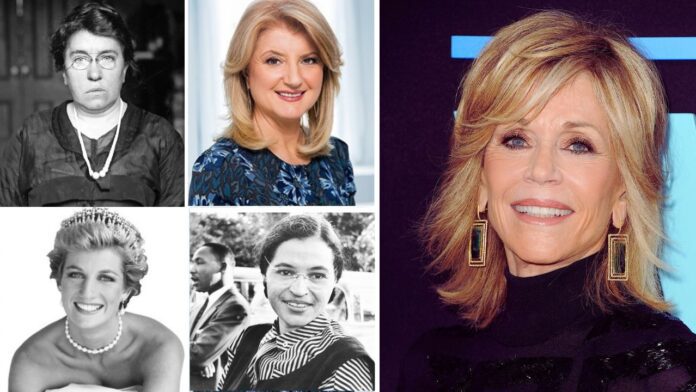From the fight for voting rights to equal pay, the women’s movement has a long, formidable history marked by courageous voices rising up and speaking out. Through the decades, feminist leaders and pioneers have galvanized millions with their calls for justice, equality and liberation. Their words raise consciousness, rally the cause, and articulate commanding visions for gender equity.
Pioneers Fought for Women’s Worth Beyond Caregiving Roles
Gloria Steinem, the iconic face of second-wave feminism starting in the 1960s, once declared, “A woman without a man is like a fish without a bicycle.” Her biting wit slammed the societal tendency to reduce women mainly to roles like housewives and caregivers. She urged recognizing women’s full personhood and potential.
Basic Equity Still Needs Fighting For
“Feminism is the radical idea that women are people,” Angela Davis powerfully stated. Though it seems basic, the underlying concept remains central to ongoing women’s struggles for parity. An anti-racist champion too, Davis exemplified linking feminist and social justice causes.
It’s About Letting Both Genders Flourish
Jane Fonda highlighted a key insight: that feminism, at its core, enables fuller lives for all people by loosening restrictive gender constraints. An actress turned lifelong activist, she connected Hollywood, politics, and social reform.
Value of Women’s Voices Revealed When Silenced
The Taliban’s assassination attempt on Malala Yousafzai for determinedly attending school made her a global symbol. Her near-death for exercising basic rights underscored why raising women’s voices remains so vital.
Joy as a Rebellious, Revolutionary Act
Emma Goldman, an early 20th-century anarchist, famously said, “If I can’t dance, it’s not my revolution.” She argued that no liberation struggle succeeds without keeping joy and fulfillment as integral aims.
Intimidated Men Not of Interest
Upon being asked whether her outspokenness intimidated men, author Chimamanda Ngozi Adichie flatly replied that she wasn’t worried, as “the kind of man who might be intimidated by my opinions does not interest me.”
Womanhood: Culturally Programmed, Not Inborn
“You are not born a woman; you become one,” Simone de Beauvoir memorably wrote. The influential French intellectual contended that being female was culturally ingrained through lifelong social coding, not defined solely by biology.
Unapologetic Voices Rising
“For a man, you’re kind of ignorant,” Anne Hathaway boldly responded when a man called her too opinionated for a woman. Her refusal to defer in the face of sexism signals a growing willingness to confront biases head-on.
Injustice and Oppression Maintained Through Passivity
Famed socialist Rosa Luxemburg explained that “those who do not move do not notice their chains.” She highlighted a tragic paradox: acquiescence to injustice only strengthens and perpetuates it.
Soaring Toward Freedom
The artistic polymath Frida Kahlo depicted herself growing wings in her work, alongside quotes like “Why do I want feet if I have wings to fly?” She embodied a creative spirit and fierce individuality against immense odds. If you want you can also read- New York’s Theater Scene: Discovering the Top Musicals for Every Taste
Unlearning Apology as Default Response
“It takes years as a woman to unlearn what you have been taught to be sorry for,” Amy Poehler wryly noted. She references how society conditions women from girlhood to reflexively and unnecessarily apologize.
Room and Resources Needed for Fulfillment
Early feminist Virginia Woolf famously wrote, “A woman needs money and a room of her own.” She argued that financial independence and personal space provide the basic foundation for women to freely create, grow, and self-determine.
Not Wanting Imposed Identities
“I don’t want other people to decide who I am. I want to decide for myself,” Emma Watson stated. The actress-activist resists externally-created female stereotypes dominating film narratives and wider culture.
Busting Rules, Roles, and Constraints
Katharine Hepburn bucked convention as an independent Hollywood star. She ignored ingrained rules around women’s behavior and interests. “If you obey all the rules, you’ll miss out on all the fun,” she noted characteristically.
Broad Vision Spanning Humanity
Author Siri Hustvedt described feminism as “a form of humanism.” Like Jane Fonda, she conceptualized it as bettering life opportunities for all people. This expansive, egalitarian framing echoes many women’s’ philosophies.
Tormented Struggles for Selfhood
The writer Sylvia Plath, despite immense inner turmoil, left searing testimony of her battle to develop an authentic identity as reflected in works like “The Bell Jar.” She wrote, “The prison is not your room; it’s you.”
Reinvent Yourself
Margaret Atwood of “The Handmaid’s Tale” fame is an ardent believer in women’s power to transform their lives. “You are free to reinvent yourself,” she urged, countering traditional narrow conceptions of acceptable female roles and trajectories.
Beyond False Promises of Fulfillment Via Romantic Love
Second-wave pioneer Kate Millett provocatively stated, “Love has been the opium of women. While we loved, men ruled.” She implicated idealized love narratives as pacifying distractions from self-determination.
You May Find Interest: Top Countries for Cosmetic Procedures: US Leads in Total Surgeries
Choosing Dreams Over Following Men’s Lead
“Some women choose to follow men, and some women choose to follow their dreams,” Lady Gaga summarized. Her extraordinary career charts a new model for unapologetically ambitious, creative women defying limits.
Diverse Bodies, Visible, and Free
“Don’t silence your body,” Lena Dunham declared about showing a breadth of body types on screen to combat stigma and shaming. Her work fights the media’s erasure of diverse figures and voices.
Conclusion
From anarchist Emma Goldman’s rallying cry to “dance” in the revolution, to Malala Yousafzai’s embodiment of the urgent need to speak out, these quotes present a tapestry of different eras, contexts and meanings of women’s empowerment. They reveal interwoven strands of expanding rights, dismantling barriers, raising visibility, claiming identity, and moving toward gender justice.
While immense strides have been made toward parity, misogyny and sexism still run deep globally. Ongoing activism carries the feminist torch lit by pioneers of past generations. The durability of their galvanizing words persists to inform and ignite modern efforts. And their visionary scope continues to widen – toward human rights and dignity for all. Their voices echo the refrain: equality, freedom and joy remain intricately bound, indispensible not just for women but for humanity’s full thriving.




![How Much is Lil Baby’s Net Worth in 2024 [Latest Info] Lil Baby Net Worth](https://www.wariat.org/wp-content/uploads/2024/03/Lil-Baby-Net-Worth-150x150.jpg)
![Rob Lowe Net Worth Speculation in 2024 [Comparative Analysis] Rob Lowe Net Worth](https://www.wariat.org/wp-content/uploads/2024/03/Rob-Lowe-Net-Worth-150x150.jpg)
